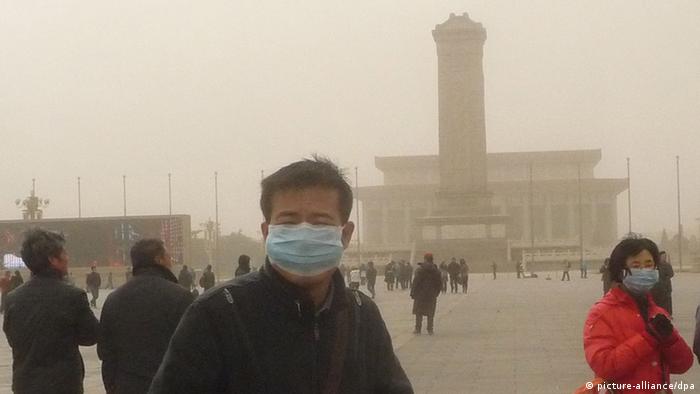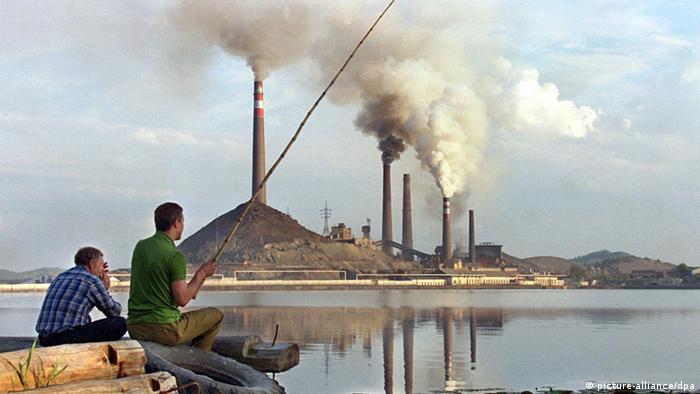Comments due by April 25, 2015
Canada's provinces are taking command of the nation's battle against climate change, seizing the initiative from a reluctant federal government as the clock ticks down to a crucial international climate agreement later this year.
Ontario Premier Kathleen Wynne on Monday signed a historic deal to join Quebec's cap-and-trade system for carbon emissions, while British Columbia Premier Christy Clark was invited to promote her province's carbon tax at the World Bank – an honour not usually accorded to a provincial leader.
And on Tuesday, Quebec Premier Philippe Couillard will play host to a meeting of provincial and territorial leaders to start crafting a national strategy to co-ordinate further climate action across the country.
"Climate change is one of the greatest challenges humankind has ever faced. This is about preserving a world for our children and our grandchildren," Ms. Wynne told reporters after meeting Mr. Couillard in his office near the National Assembly. "We cannot wait for a particular moment when the federal government decides it is going to engage."
Many of the details in Ontario's cap-and-trade system still have to be worked out over the next six months, but it is likely to look similar to the joint system run by Quebec and California. In that model, the government sets a cap on emissions and hands out some permits to industry for free while auctioning others off. The proceeds are then plowed back into other green programs, such as public transit.
Once Ontario's system is operating, 62 per cent of Canada's population and more than half its economy will be under the same carbon market. Including B.C., which uses a carbon tax instead, some three quarters of Canadians will be covered by provincial-level carbon pricing.
Ms. Clark on Monday said her message to leaders at the World Bank, which she will address Friday in Washington, will be to match B.C.'s success in slashing emissions through the tax: "The climate action challenge we're making to other governments is clear and simple: meet it or beat it."
While the federal government is moving forward with some climate-change measures – such as new regulations to make trucks more fuel efficient, and a plan to phase out coal-fired power generation – Ottawa has adamantly refused to support carbon pricing.
"We are very clear we don't want ... what is effectively a tax on carbon which would increase the cost for consumers and on taxpayers – the cost of electricity, of gasoline, of groceries," Finance Minister Joe Oliver told reporters Monday in response to Ontario and Quebec's deal. "We think this would be negative for the economy; it would be negative for consumers and for taxpayers. And that's why we oppose it."
The federal government is also leaving it up to the provinces to set their own emissions targets and report them to Ottawa, rather than attempting to forge a national strategy.
Mr. Couillard lamented this Monday, arguing that the federal government should negotiate with the provinces to set a clear plan that spells out exactly how much each province will cut in terms of emissions, and what each will do to achieve these targets.
The government must table its emission-reduction targets ahead of the UN climate summit in Paris in December, which will pull together an international accord for cutting greenhouse gas emissions.
"[The federal government should help with] getting to Paris with a common, well-documented position, which would include the global target for Canada and the allocation for different regions," Mr. Couillard said.
In the absence of the federal government, the provinces will be attempting to co-ordinate this themselves Tuesday.
But a spokesman for Environment Minister Leona Aglukkaq said Ottawa is attempting to work with the provinces and has received little feedback.
Ms. Aglukkaq has sent two letters to her provincial counterparts – one in November and another on Sunday – asking them to lay out their targets and plans beyond 2020. She told her colleagues the federal government will use that information, plus its own plans to regulate, to build a national submission for Paris.
However, Ottawa has rejected calls to lead a national negotiation on climate and energy policies and regional burden-sharing.
There are still major hurdles. Oil-rich Alberta, whose emissions are growing by leaps and bounds, must take tougher action to cut carbon if Canada is to achieve a net reduction over all. But Premier Jim Prentice, in the middle of a provincial election campaign, is skipping the Quebec meeting, leaving his province's plans up in the air.
Ms. Wynne, meanwhile, took a drubbing from the provincial opposition over her plan. Progressive Conservative environment critic Lisa Thompson argued that all cap-and-trade will do is make life more expensive for consumers in order to direct money into the treasury; she declared the plan a "new revenue tool to cover their wasteful spending."
Ms. Wynne appeared to anticipate this argument, and hit back at it as she unveiled the cap-and-trade plan at ecobee, a green-tech company in downtown Toronto, before flying to Quebec for her meeting with Mr. Couillard.
"When my granddaughter, Olivia, looks at me and says 'Grandma, what did you do [on climate change], I am not going to say to her 'I put my head in the sand because I was worried that maybe there would be a cost somewhere that I couldn't explain,'" she said. "I'm not going to do that."
(The Globe and Mail April 12, 2015)
Ontario Premier Kathleen Wynne on Monday signed a historic deal to join Quebec's cap-and-trade system for carbon emissions, while British Columbia Premier Christy Clark was invited to promote her province's carbon tax at the World Bank – an honour not usually accorded to a provincial leader.
And on Tuesday, Quebec Premier Philippe Couillard will play host to a meeting of provincial and territorial leaders to start crafting a national strategy to co-ordinate further climate action across the country.
"Climate change is one of the greatest challenges humankind has ever faced. This is about preserving a world for our children and our grandchildren," Ms. Wynne told reporters after meeting Mr. Couillard in his office near the National Assembly. "We cannot wait for a particular moment when the federal government decides it is going to engage."
Many of the details in Ontario's cap-and-trade system still have to be worked out over the next six months, but it is likely to look similar to the joint system run by Quebec and California. In that model, the government sets a cap on emissions and hands out some permits to industry for free while auctioning others off. The proceeds are then plowed back into other green programs, such as public transit.
Once Ontario's system is operating, 62 per cent of Canada's population and more than half its economy will be under the same carbon market. Including B.C., which uses a carbon tax instead, some three quarters of Canadians will be covered by provincial-level carbon pricing.
Ms. Clark on Monday said her message to leaders at the World Bank, which she will address Friday in Washington, will be to match B.C.'s success in slashing emissions through the tax: "The climate action challenge we're making to other governments is clear and simple: meet it or beat it."
While the federal government is moving forward with some climate-change measures – such as new regulations to make trucks more fuel efficient, and a plan to phase out coal-fired power generation – Ottawa has adamantly refused to support carbon pricing.
"We are very clear we don't want ... what is effectively a tax on carbon which would increase the cost for consumers and on taxpayers – the cost of electricity, of gasoline, of groceries," Finance Minister Joe Oliver told reporters Monday in response to Ontario and Quebec's deal. "We think this would be negative for the economy; it would be negative for consumers and for taxpayers. And that's why we oppose it."
The federal government is also leaving it up to the provinces to set their own emissions targets and report them to Ottawa, rather than attempting to forge a national strategy.
Mr. Couillard lamented this Monday, arguing that the federal government should negotiate with the provinces to set a clear plan that spells out exactly how much each province will cut in terms of emissions, and what each will do to achieve these targets.
The government must table its emission-reduction targets ahead of the UN climate summit in Paris in December, which will pull together an international accord for cutting greenhouse gas emissions.
"[The federal government should help with] getting to Paris with a common, well-documented position, which would include the global target for Canada and the allocation for different regions," Mr. Couillard said.
In the absence of the federal government, the provinces will be attempting to co-ordinate this themselves Tuesday.
But a spokesman for Environment Minister Leona Aglukkaq said Ottawa is attempting to work with the provinces and has received little feedback.
Ms. Aglukkaq has sent two letters to her provincial counterparts – one in November and another on Sunday – asking them to lay out their targets and plans beyond 2020. She told her colleagues the federal government will use that information, plus its own plans to regulate, to build a national submission for Paris.
However, Ottawa has rejected calls to lead a national negotiation on climate and energy policies and regional burden-sharing.
There are still major hurdles. Oil-rich Alberta, whose emissions are growing by leaps and bounds, must take tougher action to cut carbon if Canada is to achieve a net reduction over all. But Premier Jim Prentice, in the middle of a provincial election campaign, is skipping the Quebec meeting, leaving his province's plans up in the air.
Ms. Wynne, meanwhile, took a drubbing from the provincial opposition over her plan. Progressive Conservative environment critic Lisa Thompson argued that all cap-and-trade will do is make life more expensive for consumers in order to direct money into the treasury; she declared the plan a "new revenue tool to cover their wasteful spending."
Ms. Wynne appeared to anticipate this argument, and hit back at it as she unveiled the cap-and-trade plan at ecobee, a green-tech company in downtown Toronto, before flying to Quebec for her meeting with Mr. Couillard.
"When my granddaughter, Olivia, looks at me and says 'Grandma, what did you do [on climate change], I am not going to say to her 'I put my head in the sand because I was worried that maybe there would be a cost somewhere that I couldn't explain,'" she said. "I'm not going to do that."
(The Globe and Mail April 12, 2015)




